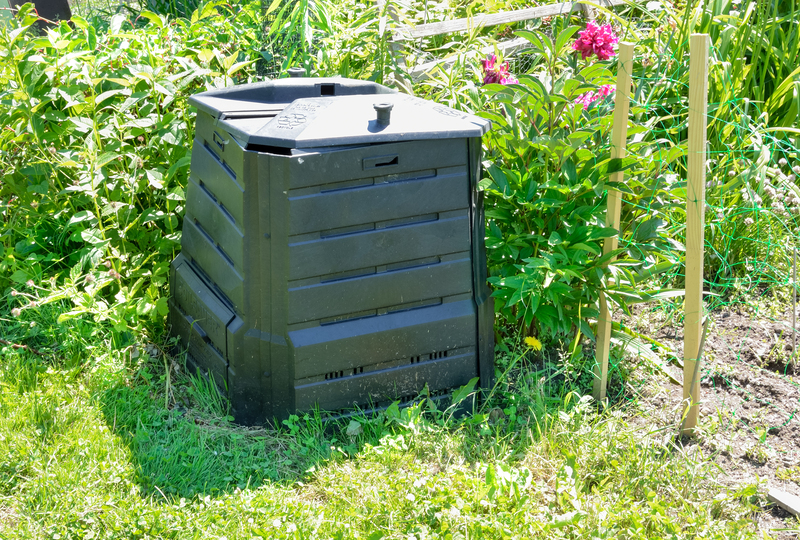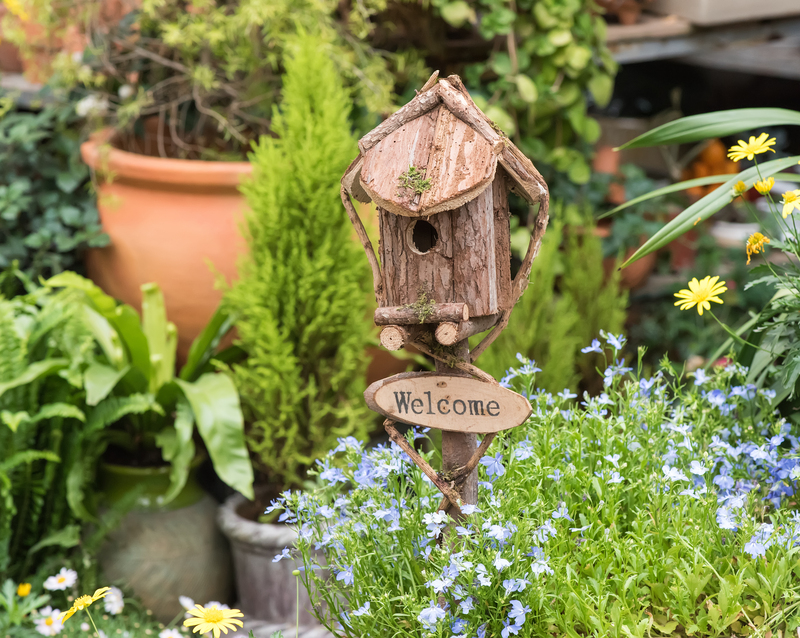Guide to Achieving a Plastic-Waste-Free Lifestyle
Are you looking to reduce your environmental footprint and protect the planet? Living a plastic-waste-free lifestyle is a powerful way to make a positive impact. As millions of tons of plastic enter our landfills and oceans each year, adopting sustainable habits has never been more crucial. This in-depth guide explores effective strategies, tips, and alternatives to help you minimize or eliminate plastic waste from your daily life.
Why Should You Pursue a Plastic-Waste-Free Life?
Before diving into actionable steps, it's important to understand the significance of reducing plastic waste. Plastic pollution adversely affects wildlife, marine ecosystems, and even human health. Microplastics, for example, are now present in our food, water, and even air. By pursuing a lifestyle free from plastic waste, you are not just helping the environment but also safeguarding your personal well-being.

Understanding Your Plastic Consumption
The first step in achieving a plastic-free lifestyle is to identify where plastic lurks in your daily routine. Take a week to track your use of single-use plastics in every area of your life, from grocery shopping to personal care.
Common Sources of Everyday Plastic Waste
- Plastic packaging: Food wrappers, bags, and containers
- Beverage bottles and caps
- Plastic straws, utensils, and plates
- Personal care product bottles
- Take-away containers and coffee cup lids
- Cleaning product containers
Once you're aware of your plastic consumption habits, you can take targeted actions to eliminate or replace these items with sustainable alternatives.
Essential Principles for Living a Plastic-Waste-Free Lifestyle
To transition to a life without plastic waste, focus on the four R's: Refuse, Reduce, Reuse, and Recycle. Let's explore each in the context of a plastic-free lifestyle:
1. Refuse
- Say no to single-use plastics such as straws, lids, cutlery, and shopping bags. Always carry your own reusable alternatives.
- Politely decline plastic freebies and promotional items.
- Opt out of unnecessary packaging when ordering items online.
2. Reduce
- Buy in bulk to minimize packaging waste.
- Choose products with biodegradable or compostable packaging.
- Support brands and companies committed to sustainable practices and reduced plastic usage.
3. Reuse
- Carry a reusable shopping bag, water bottle, coffee cup, and food container everywhere you go.
- Store food in glass jars or stainless steel containers instead of disposable plastic wrap or baggies.
- Repair and repurpose items to extend their life.
4. Recycle
- If you must use plastics, make sure they are properly recycled according to your local guidelines.
- Recycle responsibly and be aware of contamination rules (such as no greasy pizza boxes in paper recycling).
Practical Tips to Reduce and Replace Plastic in Daily Life
At Home
- Switch to plastic-free cleaning: Use natural sponges, DIY recipes, or companies offering refillable cleaning solutions.
- Use bar soap: Bar soaps eliminate the need for plastic bottles in bathrooms and kitchens.
- Compost your food waste: This reduces reliance on plastic bags for garbage and makes your home more eco-friendly.
In the Kitchen
- Choose glass, metal, or silicone food storage containers instead of plastic bags or wrap.
- Buy bulk and bring your own containers to stores that allow it; avoid individually wrapped items.
- Use beeswax wraps or cloth covers for storing leftovers.
On-the-Go
- Bring a reusable water bottle to avoid single-use PET bottles.
- Carry your own shopping bags and mesh produce bags.
- Pack a travel set with cutlery, straws, and a lunch container.
Personal Care
- Opt for wooden or bamboo toothbrushes and compostable dental floss.
- Switch to shampoo bars, conditioner bars, and refillable beauty products.
- Avoid disposable razors in favor of safety razors with recyclable blades.
Choosing Sustainable Alternatives to Everyday Plastics
One of the keys to a plastic-waste-free lifestyle is finding eco-friendly substitutes that fit seamlessly into your routine. Luckily, there are plenty of sustainable options available today:
- Reusable shopping bags made of fabric or recycled materials.
- Stainless steel or glass water bottles for hydration.
- Beeswax food wraps to replace plastic wrap in the kitchen.
- Bamboo or compostable cutlery and plates for picnics or takeout.
- Bulk food buying with your own containers.
- Refill stations for cleaning supplies, personal care, and even pantry staples.
Shopping Hacks: How to Buy with Less Plastic
1. Frequent Farmers' Markets
- Buy loose fruits, vegetables, and bulk dry goods that often don't come wrapped in plastic.
- Bring your own reusable produce bags and shopping totes.
2. Shop at Zero-Waste Stores
- Search for zero-waste or refill stores in your area, where you can bring your own containers for dry and liquid products.
- Avoid impulse buys packaged in single-use plastic.
3. Choose Products with Minimal Packaging
- Support brands that use compostable, glass, or tin packaging.
- Request plastic-free delivery options when shopping online.
Creating a Plastic-Free Bathroom
The bathroom is another area rife with single-use plastics. Transform it into a zero-waste space with these substitutions:
- Use bar soap over liquid soap in plastic bottles.
- Try toothpaste tablets and refillable mouthwash bottles.
- Switch to a menstrual cup or reusable pads instead of disposable products.
- Choose bamboo Q-tips and cotton pads that are compostable.
- Opt for deodorant creams or bars in glass or metal jars.
Engaging Your Community and Spreading Awareness
Transitioning to a plastic-waste-free lifestyle isn't only about personal change; it's also about influencing others and supporting broader movements. Here's how you can amplify your impact:
- Share your journey on social media to inspire friends and family.
- Organize or participate in local clean-ups and recycling programs.
- Advocate for policy changes that restrict single-use plastics.
- Support businesses investing in plastic reduction and clean manufacturing.
Overcoming Challenges to Plastic Waste Reduction
Pursuing a completely plastic-waste-free living can feel overwhelming, especially with the omnipresence of plastics. Here are a few strategies to stay on track:
- Don't aim for perfection. Small consistent changes add up and are better than none at all.
- Focus on one area at a time, such as your kitchen, bathroom, or shopping habits.
- Celebrate your milestones. Reward yourself for reaching goals, like a month without bottled water or plastic bags.
- Connect with others on the same journey for support and advice.
Frequently Asked Questions about Plastic-Free Living
- Is living completely plastic-waste-free possible?
While eliminating all plastic is challenging, you can substantially reduce your waste by making conscious choices and substituting with sustainable options wherever possible. - How do I handle items without alternatives?
If plastic-free options aren't available, focus on minimizing usage, reusing the item, and recycling it responsibly. - Are reusable products more expensive?
Although some sustainable items cost more upfront, they last longer and often save you money in the long run. - Is bioplastic a safe alternative?
Some bioplastics are compostable in industrial facilities but not always in home composts. Always research and check local disposal capabilities.

Benefits of a Plastic-Waste-Free Lifestyle
- Healthier home and body: Decreased risk of ingesting or absorbing microplastics.
- Cleaner environment: Less pollution in oceans, rivers, and soils.
- Financial savings: Buying less saves money.
- Influencing change: Your habits inspire family, friends, and wider communities to adopt sustainable practices.
Conclusion: Embrace the Plastic-Waste-Free Revolution
Living with zero plastic waste may seem daunting, but every positive change counts. By being mindful, making sustainable choices, and supporting the plastic-free movement, you can dramatically reduce your impact on the planet. Remember, it's about progress, not perfection.
Start your plastic-waste-free journey today and inspire others to do the same. Together, we can help create a cleaner, healthier, and more sustainable world for generations to come.